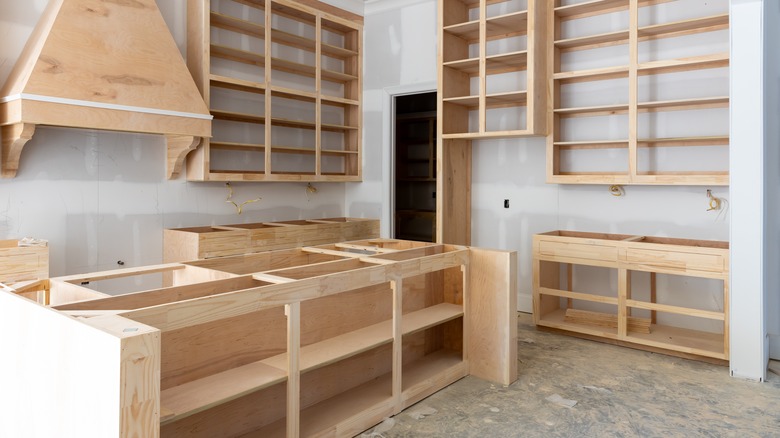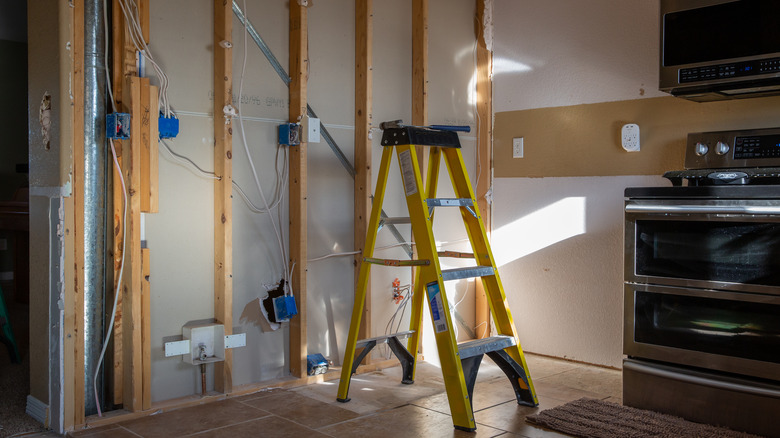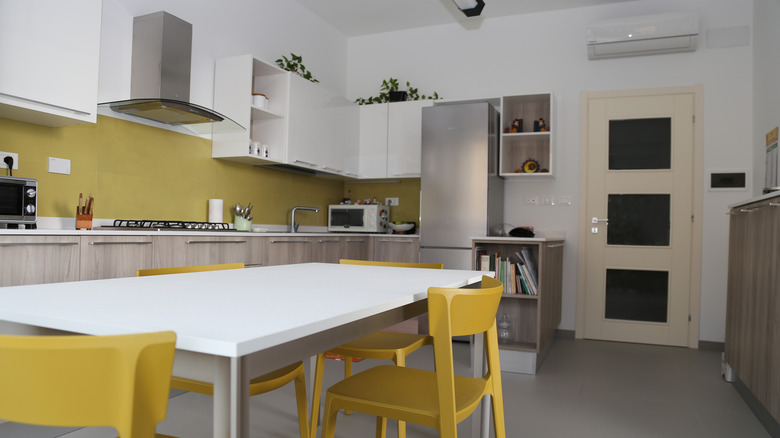You Can't Afford To Ignore These Red Flags In Your New Build's Kitchen
If there's any room in the home that needs quality construction, it's the kitchen. A lot of activity and movement is constantly happening, so it needs to be built well to last a long time. Whether you're renovating your kitchen or doing a new build, red flags you should never ignore are those that pose risks to the home's structural integrity. Some of these include moldy building materials, poorly done waterproofing, and poorly set up mechanical systems, according to a licensed contractor and consultant, who took to Instagram to explain warning signs.
Even as move-in day nears, there are plenty of red flags to watch out for, especially when you bear the financial responsibility for a build or renovation. It's important to stay on top of things and keep a watchful eye when contractors are working on your project, especially in the kitchen, where it's costly and dangerous for certain things to go wrong.
Watch for bad waterproofing and mold
Waterproofing is crucial in a kitchen because of all the water and moisture that moves around. Surfaces like floors and walls can be waterproofed with certain types of tiles or paint so they can withstand everything from spills to cleaning. Badly done waterproofing will eventually catch up with you when surfaces break down and need to be redone or replaced — so make sure the waterproofing is intact and you have an effective leak management system.
General water damage can quickly turn to mold. Leaks and excess moisture in the kitchen can make essential surfaces breeding grounds. During construction, building materials that get wet or moist can also develop mold quickly, which compromises the integrity of the build from the jump. This can cause serious damage to the structure down the line and is especially risky since the mold won't be noticeable. So, inspect your materials to make sure they're dry, or ensure they are dried out well if they've been exposed to moisture. You may also want to install quality insulation during construction to prevent mold from entering your home.
Keep an eye on mechanical systems
Mechanical systems like heating and cooling are a big part of construction, because balanced airflow is critical for comfort in indoor spaces. In the kitchen especially, you need to set the right atmosphere to avoid it getting too hot, too humid, or too cold. If your contractor installs a ventilator like an exhaust fan in your kitchen, make sure it's set up to let the exhaust out in the right place. It should always go right outside and not somewhere else inside the house like the attic or under the floor, per The International Association of Certified Home Inspectors.
Another red flag surrounding ventilation concerns the air conditioning. It's convenient to keep you cool in the kitchen, but pay attention to make sure it's not placed incorrectly, like close to the stove. While this might seem helpful because it can cool the area where the most heat is generated, the air from the stove can actually damage the unit when it sucks in too much. If space is limited, consider using a ducted vent hood to cool down the kitchen instead. Connecting your central air conditioning to the kitchen can also cause problems. While it's fine for other parts of the house, having the kitchen connected to your central unit will cause smells and air from the kitchen to travel to other rooms. Stick to individual AC units for the kitchen.


